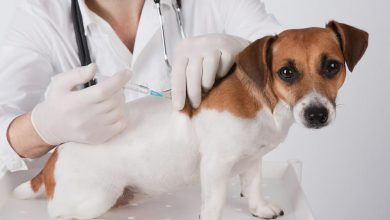How to Keep Your Dog’s Pearly Whites Healthy: Tips for Dealing with Cavities

1. Introduction
When it comes to our canine companions, cavities may not be the first thing that comes to mind. Cavities are more commonly associated with humans, but dogs can suffer from them as well. In this article, we’ll discuss what to do if your dog has a cavity, including the signs and symptoms of cavities in dogs, how to diagnose and treat them, ways to prevent them, and home remedies that may help with cavities in dogs.
2. What is a Dog Cavity?
A dog cavity is a dental condition caused by bacteria attacking the enamel of the teeth. This causes the enamel to break down and creates small holes in the teeth known as cavities. Left untreated, these cavities can lead to infection and gum disease which can cause pain and discomfort for your pet.
3. What Causes Cavities in Dogs?
Dog cavities are caused by bacteria attacking the enamel of the teeth due to poor oral hygiene or certain dietary choices such as sugary treats or processed foods high in carbohydrates. Additionally, some breeds of dogs are more prone to developing cavities due to their anatomy or genetics such as small breeds with narrow mouths or those with shallow root systems on their molars.
4. What are the Signs and Symptoms of Cavities in Dogs?
The most common sign that your dog may have a cavity is bad breath or halitosis. Other signs include yellowing of the teeth, redness around the gums, difficulty chewing food, visible holes in the teeth, or sensitivity when touching their mouth area. If you notice any of these signs it’s important to take your dog to see a veterinarian immediately as they will be able to diagnose and treat any cavities your pet may have developed before they become too severe.
5. Diagnosing and Treating Dog Cavities
If you suspect that your dog may have a cavity it’s important to take them for an examination at your local veterinarian immediately so they can properly diagnose and treat any issues before they become worse over time. During an examination your vet will check for any visible signs such as discoloration or holes in your pet’s teeth as well as use x-rays if necessary for further diagnosis. Depending on how severe the cavity is there are various treatments available ranging from fillings or crowns for minor cases all the way up to extractions if necessary for more serious cases where decay has spread throughout multiple teeth.
6 How To Prevent Dog Cavities
The best way to prevent dog cavities is through proper dental hygiene practices such as brushing their teeth regularly with toothpaste formulated specifically for pets (never human toothpaste), providing chew toys that help clean their teeth naturally while they play, avoiding sugary treats or processed foods high in carbohydrates whenever possible,and scheduling regular check-ups at least once a year at your local veterinarian so any potential issues can be caught early on before they become worse over time.
7 Home Remedies For Dog Cavity
In addition to professional treatments from your veterinarian there are also some home remedies you can try if you think your pet might have a cavity such as using baking soda mixed with water into a paste which can be applied directly onto affected areas twice daily for several days until symptoms subside.Additionally adding apple cider vinegar diluted with water into their drinking water can help reduce bacteria levels within their mouth which could potentially reduce risk of developing future cavities.
8 Conclusion
Cavities aren’t just something humans need worry about – our furry friends need attention too! With proper dental hygiene practices like regular brushing,avoiding sugary treats,providing chew toys,and scheduling regular check-ups at least once a year at your local vet there’s no reason why our beloved pets should ever suffer from painful toothaches due to unchecked decay.Additionally if symptoms do arise there are both professional treatments available from veterinarians along with home remedies like baking soda paste applications and diluted apple cider vinegar drinks that could potentially help reduce risk of further damage.
9 FAQs
.
Q: Are all breeds susceptible to getting cavities?
A: While all breeds are susceptible,certain breeds such as small breeds with narrow mouths or those with shallow root systems on their molars may be more prone than others.




